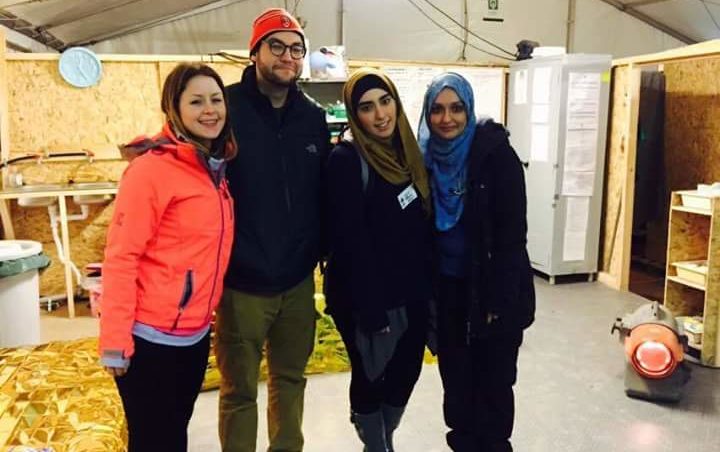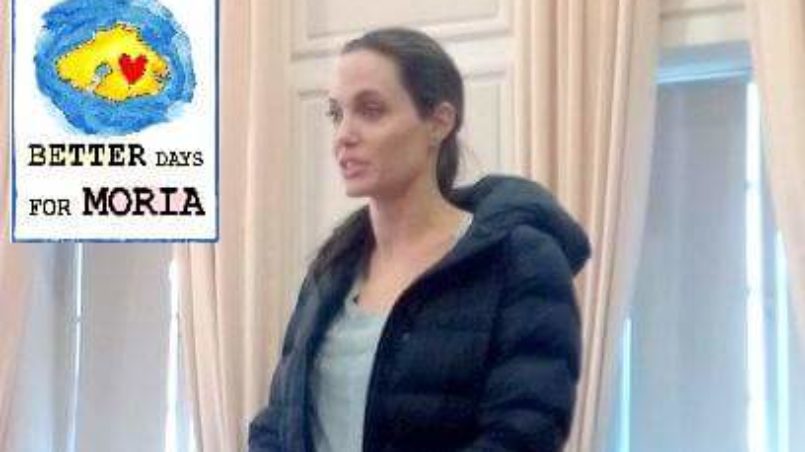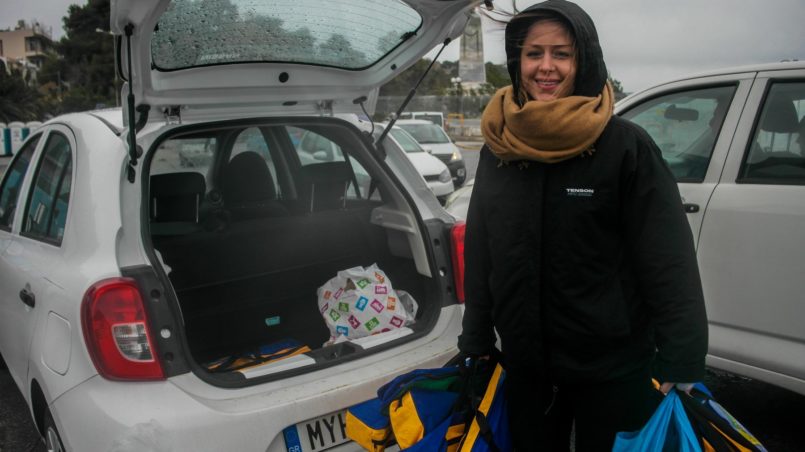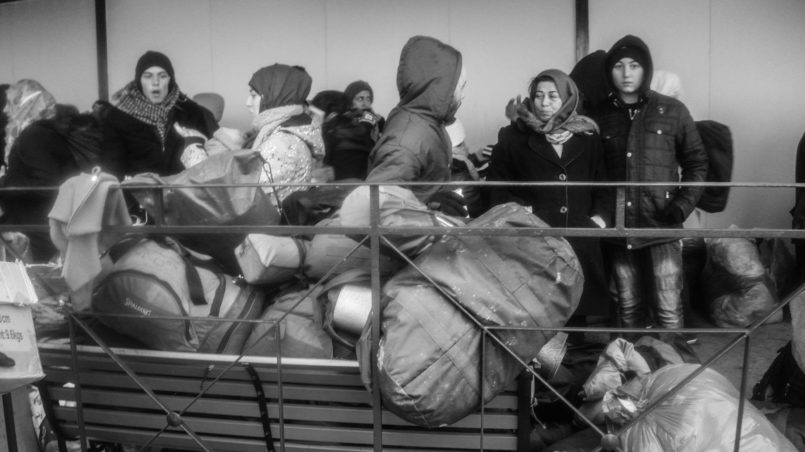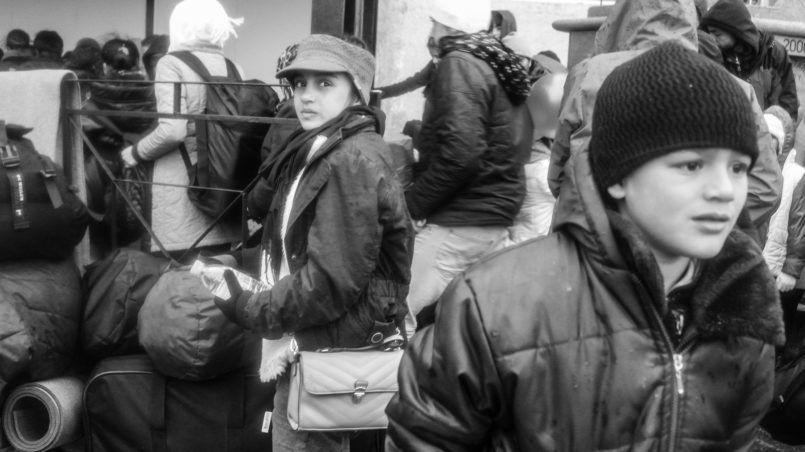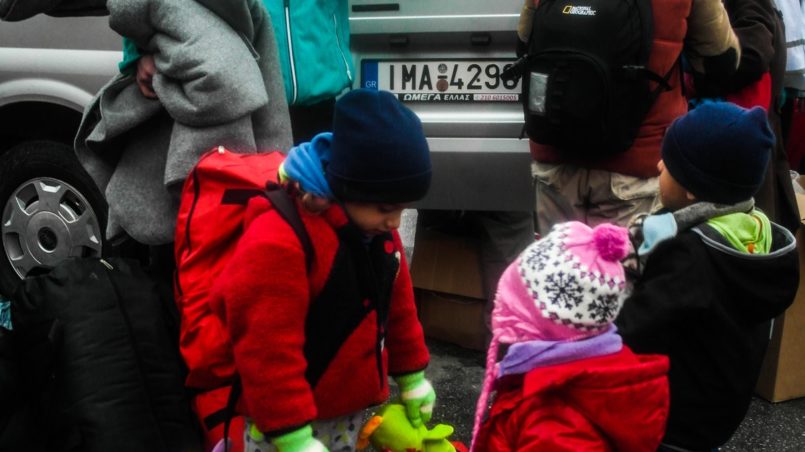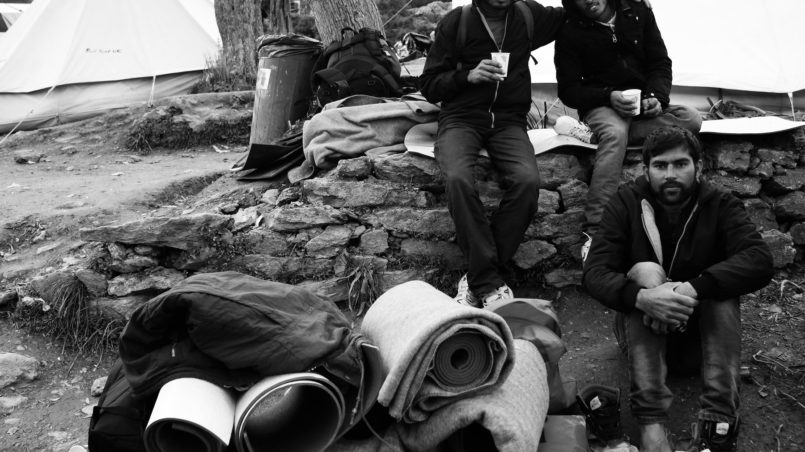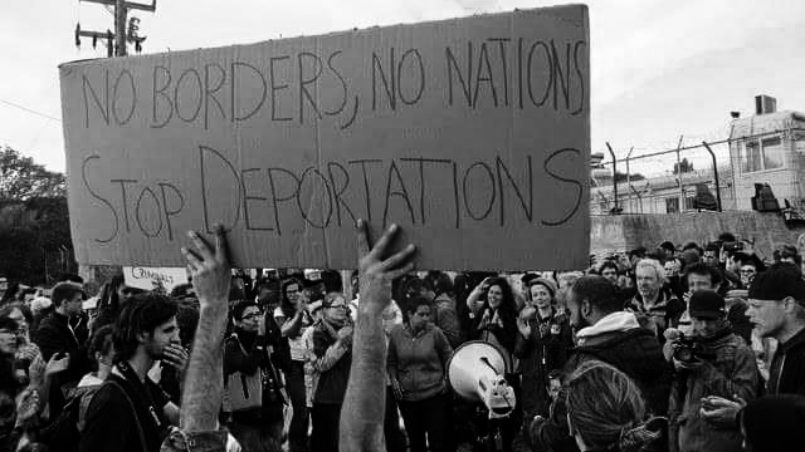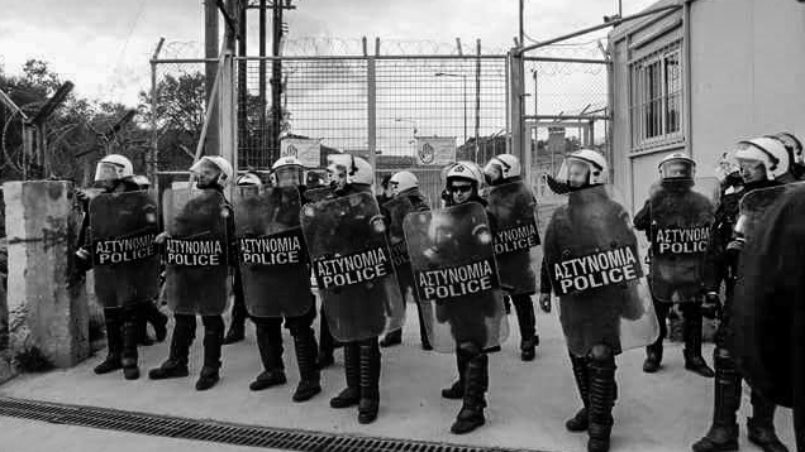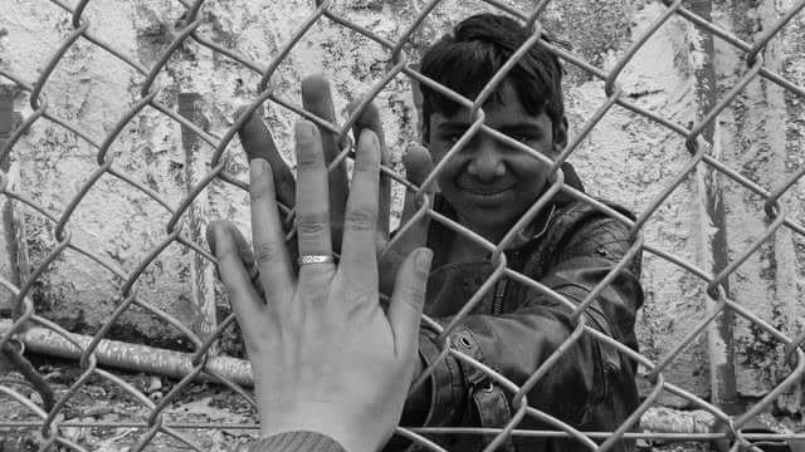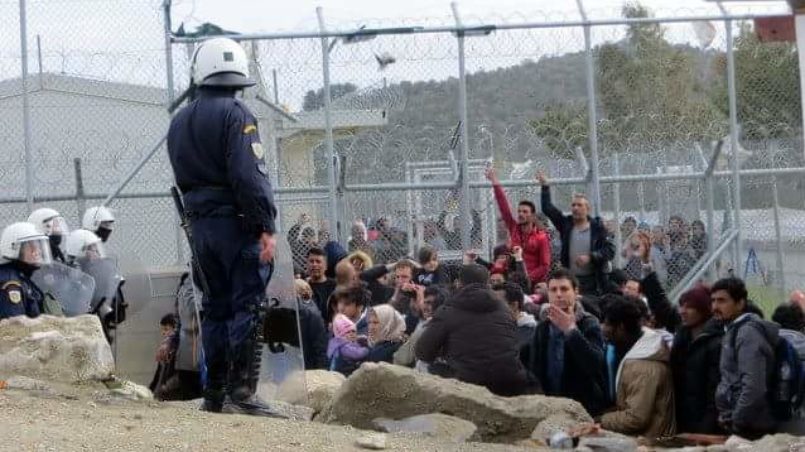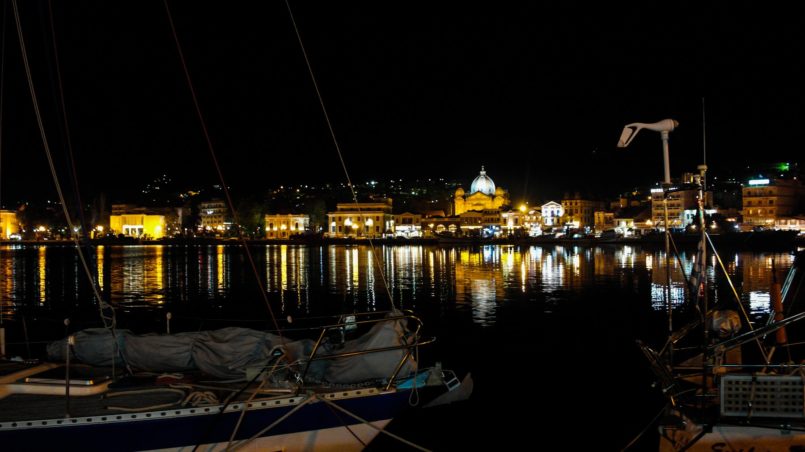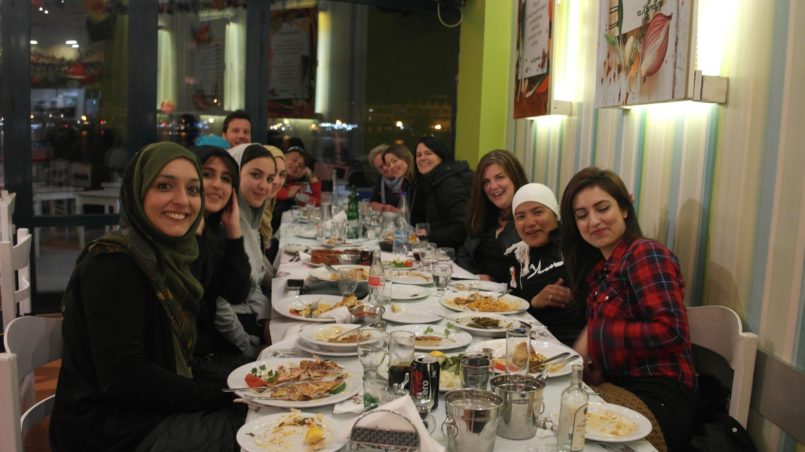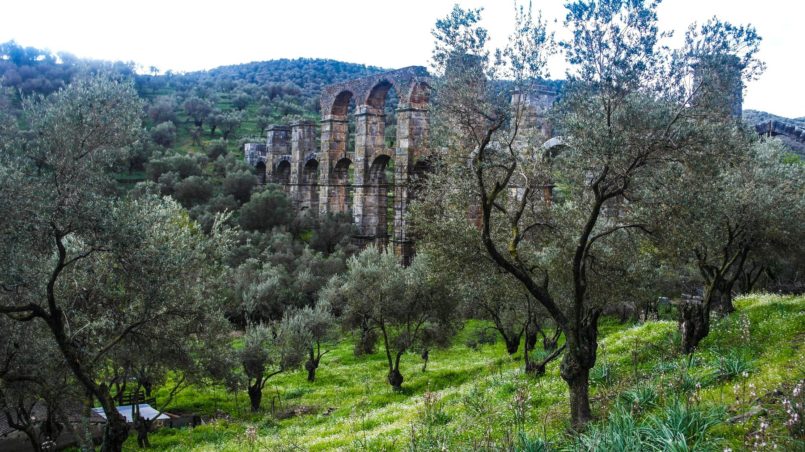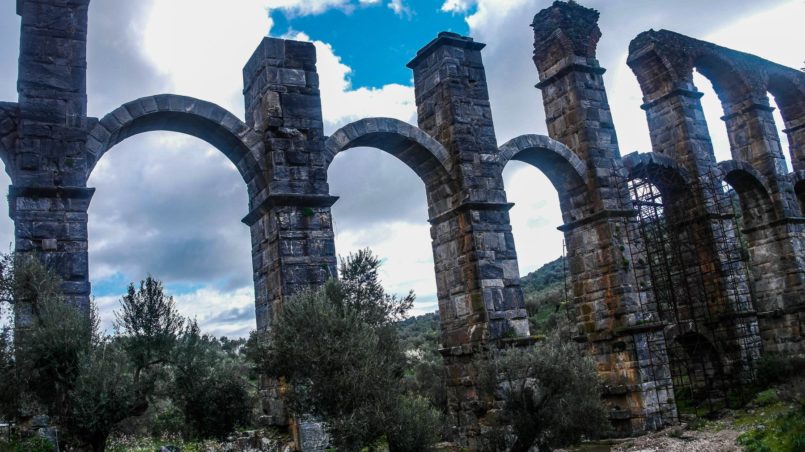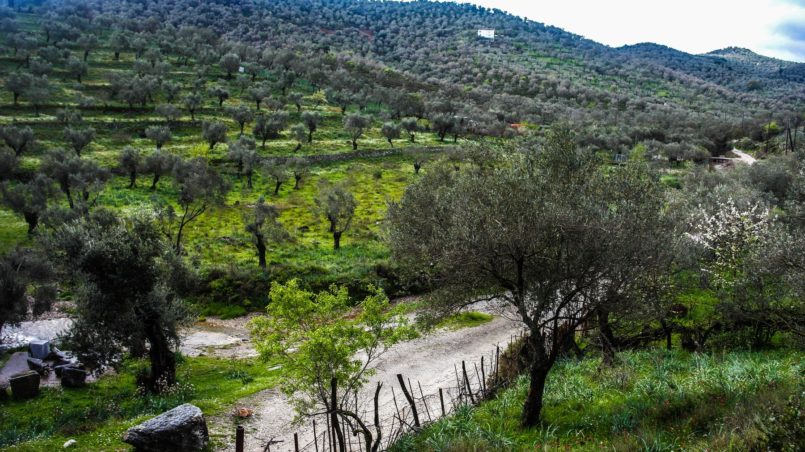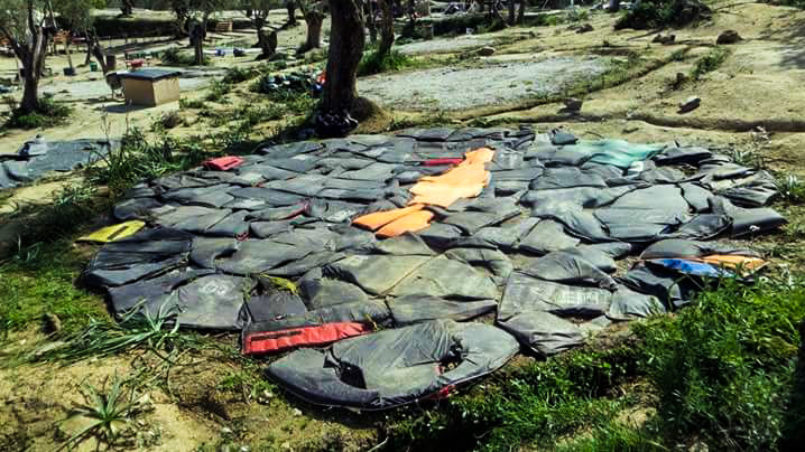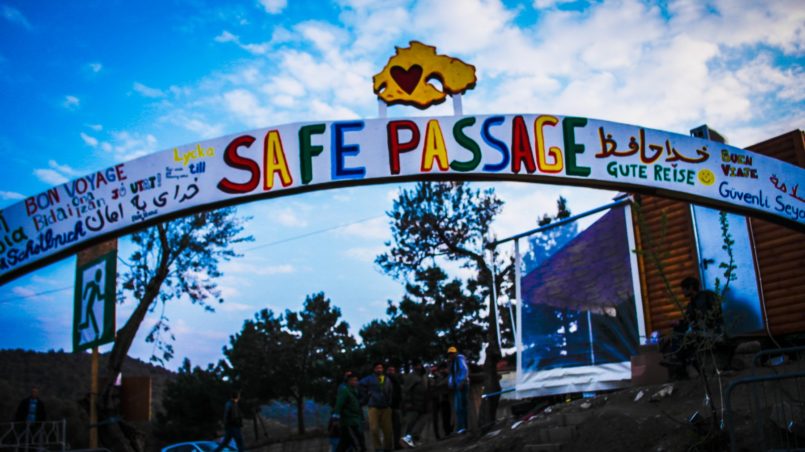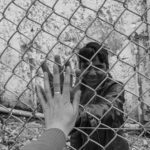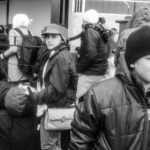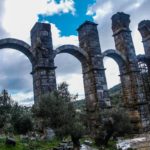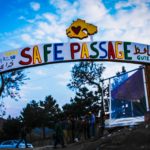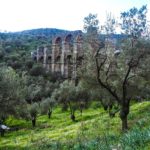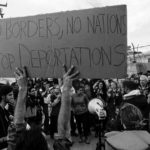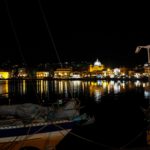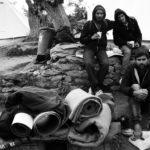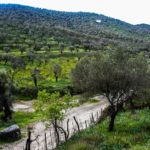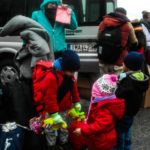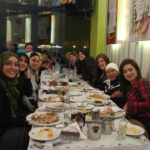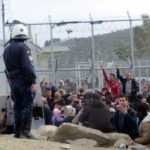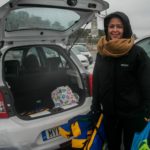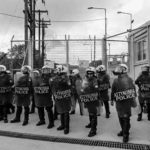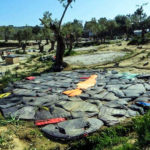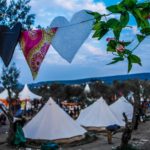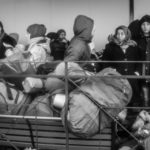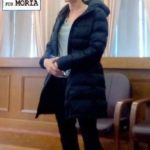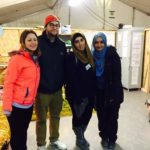The end of BDFM
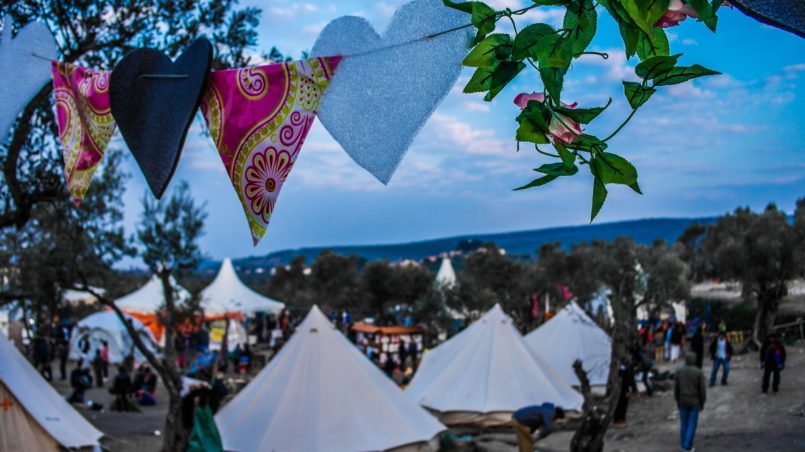
After my first night shift in the medical tent, the following days continued to be quite busy. Since not many people were willing to do night shifts, I signed up for them- some shifts were from midnight until 8 am and other shifts were from 8 pm until 8 am, when there was an abundance of patients and a lack of staff. The 12- hours shift may sound a lot, but when you are busy working and also enjoying what you are doing, time just flies and after all I am here to help as much as I can and always give my 110 %.
Night shifts are obviously not all the same, they vary from being extremely busy to almost nothing to do all night and just having nice conversation with other staff members on duty.
One of the following nights, I was working along with a young Greek doctor. When we started our shift there was already one Pakistani man in the clinic, he was Christian, and he was due to stay overnight since he was seen as a vulnerable case. He claimed that the others were treating him badly, due to religious reasons (Christians are a small minority in Pakistan, since Islam is the state religion). We kept him overnight and referred him to another camp the next morning, where he could stay safely. In the middle of the night we got another patient, an Afghan baby girl, who her parents had brought to our clinic from the Moria compound- since the Doctors without Borders clinic is closed during the night. The baby was sweating a lot as she suffered from high fever and diarrhea. They didn’t speak any English, only a few words, so we had to call the translator who was on duty for the night and he came promptly. We kept them in overnight, rehydrated the baby and waited until the fever went down. Due to the stressful situation young mothers are in, most of them are not able to breastfeed their babies (this was also the case in this family). Along the journey the mother was feeding the baby only with cow milk and was not able to sterilise the baby-bottle anywhere. This explained why the baby was suffering from diarrhea and fever. To avoid further infections, we immediately sterilised the baby’s bottle, prepared some formula milk, taught them how to use and how to keep the baby-bottle clean etc., and told them that whenever they need new formula or they need to sterilise the bottle, they should come back to us. Before going back to their compound both parents expressed their deep gratitude and seemed much more relieved in comparison than when they first came in. Dr. George and me were happy that we could help.
Just when the sun started to raise and we were ready for shift change, someone knocked on the door. A very agitated women, crying and shouting, was standing in front of us with a baby in her arms. She said that she had seen the doctors from Doctors without Borders the previous evening, but that the fever of the baby did not go down at all. We took her in, calmed her down and had a look at the baby. In situations like this it is very important to keep calm and be very patient and understanding towards the family. The refugees are exposed to a continuous physical and psychological pressure. Especially for mothers travelling alone with their children or new-borns the situation is very difficult and emotional outbreaks happen from time to time. Sometimes the medical staff has to see such a high number of patients that they can get overwhelmed and stressed, to the point that they would react in an uncomfortable manner towards the patients than they would do in a normal situation. This is natural since we are all human beings and not superhero’s but it will lead to misunderstandings between patients and physicians and the patients might feel as they are not understood or mistreated. After all, the refugees are in a very bad life experience since they came to a country where nobody speaks their language, where no one really explains anything, where they don’t know what will happen to them and where they are just scared for their life and for their children’s life.
We did the shift change, forced ourselves to have breakfast in the food tent and drove home to recharge our batteries.
As soon as I got home, I met my room-mate who also just reached home, after completing her night shift. She worked with the Swedish organization I am you inside the Moria compound. Even though we were both looking and feeling like zombies, extremely tired and forcing ourselves to keep our eyes open, we couldn’t stop each other of not speaking about our experiences during the previous night- we had to many emotions inside us which needed to find a way out. As we started talking, she told me that during her night shift, she had to deal with three different cases, which all needed medical attention. She was totally overwhelmed and desperately tried seeking the doctors who were on call, knocking on the door but no one replied. One man suffered from Diabetes and started to feel very bad suddenly; another one, in a wheelchair, experienced severe pain in his limbs and the third was a women in her twenties, just fainted in front of her. She called the ambulance and as they came they took only the women who fainted with them since that was an emergency. Only after about 30 minutes, one of the doctors on call finally woke up, excusing himself since he was sleeping with earplugs and therefore didn’t hear the knocking. I was totally speechless, that in a camp which can hold up to 2000 people, there is no reliable medical service available. Unfortunately my room-mate and her co-workers, didn’t know that they could come to our medical tent at BDFM (Better days for Moria), or that they could even call us, in case of an emergency and we would come to the Moria compound with our medical outreach bags to assist them (the entrance to the Moria compound, for people who do not work there, is allowed only for medical emergencies). This severe lack of communication among the two camps (Moria & BDFM), which are not even 5 minutes walking distance away from each other, leads to incidents like this. Fortunately, this time nothing major happened, but still- for the future- there should be more cooperation between different organizations especially medical ones and more awareness and information between staff members.
As we continued our conversations she started telling me about the depressing & suppressing atmosphere and inhuman conditions inside the Moria compound. She said that every time she entered the compound, surrounded by barb-wire, she felt like she can not breath- it’s a terrible feeling.
After the refugees have arrived with the dinghy, they are brought to Moria camp where they have to wait to be registered. The ones who were not lucky enough to get welcomed by volunteers on the coast and get offered dry clothes and food, have to stand for hours in the line of registration. They had just faced death, they are wet, cold, shaking, dehydrated and hungry. There were no chairs or shelter available and during the night it was very cold and often it rained on top of that. Only after being registered they were allowed to move freely and get dry clothes and food & beverage supply; those who knew about BDFM came there, since we offered 24- hours hot food & tea supply, as well as clothes distribution. Without the volunteers, who were around 24- hours and did the best to help in any possible way: bringing a smile on peoples faces, giving and showing them comfort, entertaining the children, handing out blankets, dry clothes, snacks, hot tea etc., (if it was available, since sometimes the resources were not there) without them, waiting in line would have been an even bigger nightmare.
After I knew all this, I realized the big difference between Moria and BDFM camp; it was like night and day, and even though I was happy to work at BDFM, surrounded by a happy and positive atmosphere, I wished that I could do more for the people inside Moria compound.
A few days later I signed up for another night shift, this time a 12- hour shift along with another young doctor from Pakistan. This night I met the first Pakistani refugee women ever, since usually it is just men travelling by themselves and when I asked them where they left all the ladies, they said that considering the very long and difficult journey (approximately 4500 km from Pakistan-Iran-Turkey-Greece) it would be too dangerous for a women. In the middle of the night, just when Fatima and I were emerged in a deep conversation about life, a man and a women suddenly entered the room and were standing in front of us shaking, soaking wet and with an empty look on their faces. Good thing that Fatima speaks Urdu (national Pakistani language) she asked them to sit down and tell us what happened. In the meantime I went to get some blankets, dry clothes, snacks and hot tea. The young couple said that they had just arrived with the boat from Turkey and that there were no volunteers to assist them. It is very rare, that boats arrive and no one knows about it, but from time to time it happened; mostly when boats land on the north of the island instead of in the south . They had to walk all the way from the point they stranded to the camp (a few hours), along with the other passengers of the boat. I could not imagine what they had been through, first sitting for hours on that boat with no food or drinks and getting wet and then walking in the dark for some hours again. As soon as they warmed up and felt a little bit better, we told them where they could sleep for the night and that we would arrange a better place tomorrow, since she is a women (vulnerable case). Just moments later, as Fatima and I got over this shocking news, a man with two small girls, maybe 2 and 4 years old, came inside. As I touched the girls I realized that their clothes were wet as well. They had been on the same boat as the Pakistani couple and they as well walked all the way here. By the look on the dad’s face we understood that they have been through a lot; he looked very frightened but as well very relieved that he found the camp and that he and his girls were safe now. We assisted them as good as we could and were happy that everyone made it to the camp safely and in an “okay” condition.
In the morning, after the shift change, a small girl, 4 years old, came in along with the parents. The little girl was crying and screaming a lot, since she was in severe pain due to her dislocated left shoulder. We asked them what happened and the parents told us that a few days ago, a man in Turkey, pushed the little girl violently when they were about to go on the boat. We immediately called an ambulance, told them that everything will be okay, and gave them some money for the return trip from the hospital with the taxi. Seeing this little innocent girl like this, in so much pain, made me feel really angry and sad at the same time. This whole night was a lot to take in and a lot to process.
I needed some rest now.
That same day, just a few hours later, during my next shift which started in the afternoon, we had to call the ambulance once again. This time, a 65 year old Afghan man came to our clinic presenting with symptoms of a possible myocardial infarction (heart attack). The ambulance was here promptly and took the man, along with his wife, to the hospital. As they did not speak any English they didn’t know what is going on and they got even more anxious, indeed it must be scary being in a foreign country, knowing that the people talk about you and your condition but not understanding one single word. We later found out that the man did not suffer from a heart attack.
A few hours later, I started my night shift along with Dr. Fatima, from Pakistan. Suddenly it knocked on the door and two men were standing in front of us. One was wearing a vest from Doctors without Borders, the translator, and the other man had tears in his eyes, was just staring at us and couldn’t really say anything. They had arrived from the other compound. We asked them to come inside to get a better understanding of the situation, but the man just kept crying and sobbing. As I don’t speak Farsi (official language from Afghanistan) and it is more comfortable to speak from person to person instead of through a translator, Dr. Fatima spoke to the man and I prepared some tea in the meantime. He experienced a nervous breakdown and calmed down after some time, as the talk helped him. We found out that he was in Germany, but after some time he got news from Afghanistan that his family is in danger. He immediately went back to Afghanistan but unfortunately found out that all his family had been killed. Again he started his journey towards Europe, towards safety. So at this moment he was on his second journey, alone, and from time to time he experienced this nervous breakdowns. He regularly went to seek psychological support, but it was only available during the day and he actually experienced this breakdowns during night time. Before he went back to the compound we told him that he had the possibility, to see a psychiatrist (along with a translator) the next morning. He thanked us and said he will think about it.
It was around the 15th of march when we got the news that Angelina Jolie , Special Envoy of UNHCR (United Nation High Commissioner for Refugees), will come and visit Moria refugee camp. As I am a big fan of hers, I hoped that she would also find the time to visit the unofficial BDFM camp, but she didn’t. Later that day I spoke to a few refugees which had seen her and they told me that everything was set up for her visit, transmitting an unreal image of the camp to the public. Instead of showing the reality, like for example that all refugees were forced to leave their little huts (those who were lucky enough to get a hut were mostly women and families) or tents everyday around 9- 10 am and just stand outside for a few hours, with all their belongings, no matter what weather conditions there were (this time was the time when the huts were being cleaned, to prevent disease outbreaks like scabies for example), or the extremely crowded living conditions which forced people to sleep on the floor without mattresses or even outside under a tree. Instead of showing all this truth, the media choose a nice and well organized Syrian family as well as a nice (fake) prepared hut and filmed the interview with Angelina Jolie and the family there; not mentioning that on a normal day this family would be standing outside with all their belongings (maybe in the rain), waiting for their hut to be cleaned. I remained very much disappointed by this “fake” presentation.
We thought and hoped that Angelina Jolie’s visit would raise awareness and bring some positive changes to the current situation, but unfortunately the opposite happened. Soon after her visit we got to know that Greek authorities had decided to deport all Pakistanis, so to speak all refugees who were not officially registered, back to Turkey. We heard these “rumours” many times in the past already, but this time it seemed different. During one afternoon, a few days later, a police man came to BDFM camp and chased after the Pakistanis. Everybody was running in different directions, it was a mess. Later we found out that he was searching one specific person, but did not find him. The police officer shouted that we should be prepared since in the next days a whole police group will come to take all the Pakistanis. He left the BDFM camp in fear and worries; the atmosphere among the refugees but also among the volunteers was extremely tense. Even though I understood what he was saying, I simply could not believe and imagine that the police would clear the whole camp. The following nights, I saw many people sleeping outside (next to the food tent), so that they would be able to run away from the police in case they would surprise them in the middle of the night. The refugees were very scared and confused and repeatedly asked us the same questions, like “What will happen to us?”, “Is it true that we will be send back to Turkey, we have come such a long way and lost everything…?”, “Can you help us somehow?” and many more. But unfortunately we also didn’t have the answers and besides showing our compassion and love, there was not much we could do.
Just as we still had hope and thought everything would turn around to be good, authorities announced that starting from the 20th of march everything will change. The European Union and Turkey had made a deal, stating that they will clear all the current refugee camps on the island and transport everybody to more permanent camps on the mainland of Greece, so that they could assist every single case better and help in family reunification, distribution or grant asylum. Moria refugee camp will be transformed into a detention center, like a prison, where no one is allowed leave. All the people who were on the island of Lesbos and were not registered (everyone who was from a country which is not recognised as an unstable and dangerous country, so to speak all the Pakistanis, Nepalese, Moroccans etc.) and all the new arrivals (after 20th march) will be locked up in the Moria detention center until they get either deported, are granted asylum or are helped with family reunification (this process can take an indefinite amount of time). We all remained shocked, but again, regarding the high number of people distributed among the different camps on the island, it was not imaginable for us that they would be able to clear everything in such a short time, but we were wrong…
In the night between the 19th and 20th of march we were expecting the arrival of many boats, since people knew that this is their last chance to be able to get to the mainland of Greece and not be locked up in the deportation center of Moria. It was a rainy night and I was working at the clinic in BDFM, but following the situation at the shore via the WhatsApp group. My phone was ringing continuously and as I checked the messages it was brutal. I listened to some voice-mails, who refugees on the boat had sent and I could hear a women screaming and crying. I didn’t understand what she was saying but my friend translated it for me: there was a lot of water in the boat and they were asking for help since they were afraid to drown. That night, there were some more emergency cases, a women said that her child is not breathing and another one had lost her new-born on the boat among the crowd of people (women and children are always placed in the middle of the dinghy, as it is safer). The good thing was that the volunteers on the shore could communicate with the refugees via WhatsApp and therefore assist them in the best possible way, rescue them, call the ambulance and be prepared for their arrival.
In a short amount of time the whole island was cleared, many ferries were leaving all day long, bringing the refugees to the mainland. I went to the harbour to distribute clothes, tents, baby strollers, food and anything else people needed for their long journey. There was a lot of confusion, fear and worries among the refugees, since the authorities didn’t really announce where they will be transferred to. Some feared that they would be immediately deported and brought back to Turkey, whereas others were in a good mood, smiling and kind of “happy” to leave the island. I guess the happy ones thought that this was a step closer, a step closer to have a future – to go to Germany or any other country where they have the possibility to build up a new life, work, send their children to school etc… As a matter of fact, no one really knows what will happen. Because of the lack of communication and the fear of deportation I heard from some refugees, that they will be hiding on the island, in apartments or hotel rooms, instead of taking the ferry.
Starting with the 20th of march UNHCR and Doctors without Borders, both announced, that they will stop their services on the island, since they didn’t support the detention center as it goes against humanity (conditions were totally overcrowded, the camp had a capacity of 2000 people but there were at least 2600 people- leading to even less privacy and an increased risk of disease outbreaks). This meant, that from now on, there will be only one bus available (which transported refugees from the shore to the detention center) for the whole island, the Coastguard bus, and there will be no more medical tent located in the newly formed Moria detention center. Even though all the Pakistanis (around 500) from the BDFM camp, were transferred to Moria detention center or were deported straight away, leaving the camp basically empty, HPF (Health Point Foundation) the organisation I was working for, decided to stay there as long as possible and offer medical help to the refugees inside the detention center. After the recession of Doctors without Borders, they were the only medical organization left near Moria.
During this time I decided to leave the island of Lesbos and go to Eidomeni, on the Greek- Macedonian border, along with another member of HPF. Conditions were very bad over there and everyday new people were arriving in big numbers, there were about 10.000 refugees over there, hoping for their luck and waiting that the border will open. I was still having mixed feelings about it, since a few members of HPF already went there and told us that there were a lot of riots happening and that from time to time it can be dangerous. But again, if I have learned something in life, it is that you should always listen to your heart and only you, yourself, know what is right and what is wrong to do – nobody can decide for you, you have to experience it yourself without letting other people influence you.
I spent the last days on the island in the best and most effective way possible- helping out in different areas.
Finally my last day arrived and I went to the clinic to pack two outreach bags, two back bags and one suitcase full of medication to bring with me to Eidomeni. I drove back to the city, walked along the harbour one more time and had one last dinner with the team. It was very painful and strange to say goodbye to everyone, but the last days have all been about goodbyes so I was kind of used to it by then.
After the dinner I really could not sleep and since I saw on the WhatsApp group (which announced the location and the arrival of the boats) that boats were on the way to reach the island, I drove to the coast, along with two other friends. Just a few minutes after our arrival, a dinghy had arrived as well. I was searching for blankets and dry clothes to hand out, but couldn’t find anything. I don’t know why, but it seemed that his time the volunteers who were responsible to prepare the area for the arrival of the boat and put out blankets and clothes were not well prepared. The whole process from getting off the boat and accessing the Coastguard bus went really fast and everybody seemed really stressed. I saw many people accessing the bus with their wet clothes. I don’t know why but suddenly I just “froze”, everybody and everything was moving and passing by me; I was just standing there with tears in my eyes and observing this miserable and crazy situation. In that moment it just hit me, all this craziness, this desperation, this injustice, this inhuman conditions etc., it simply was too much for me and I had to admit to myself that I had reached my limit. I couldn’t handle it anymore to see these eyes. Eyes full of emptiness, sometimes hope, sometimes fear, eyes who had seen death multiple times, eyes who had lost everything. In that moment, I felt it stronger then ever, that it was the right decision for me to leave this island. I was aware about the fact that Eidomeni will definitively not be much “easier”, but it was a change, a different environment and that was what I needed. After I came back to a normal state, we went out to distract ourselves a little bit. First we had breakfast and then we went to visit the Roman aqueduct (the best preserved section has a length of 170 meters, dates back to the 2nd century B.C. and was used for water transportation from the springs of Olympus mountain to the city of Mytilini), situated in a small village near Moria refugee camp, among olive trees. Sitting there, being surrounded by nature, in this peaceful and relaxing environment, helped me to forget everything (at least for a moment), smile again and get back some of my positivity. I couldn’t have asked for a better ending.
An hour later, I found myself standing at the airport with my suitcases full of medicines, knowing that I will never look at things the same way and that I will never be the same person again. On one side I was questioning humanity, but on the other hand I was very much proud about humans. So many different people, from all over the world had come, unified, reunited, spent and sacrificed there time and money; all this to help those, which in this specific time, were less fortunate. It was amazingly beautiful to see such a strong unity among humans, all fighting for the same good cause. The island of Lesbos, Moria, this whole experience has taught me so much and I have evolved and grown in so many different ways because of it. The weird thing was, that after having seen all this, after having experienced it in real life; I still sometimes have the feeling that all of this was just dream or a movie– that it isn’t reality. I saw it with my own eyes, I helped people with my own hands, I spoke about it with my own tongue and I gave compassion with my own heart- but still my own mind couldn’t process and understand all of it.
While I had started a new experience in Eidomeni, in Lesbos on the other hand they had to clear the BDFM camp and HPF also had to leave from there. This was “the end” of the nice hippie camp, surrounded by olive trees and offering a positive atmosphere for refugees. After all, it is about the people who constructed this camp and who worked in the camp- day in, day out. Without these people, without the volunteers, the camp would have just been a soulless constellation of different tents. Therefore, I am positive that this is not really “the end”, since volunteers around the world will continue to come together and fight the good fight.
Thank you for that ♡.

